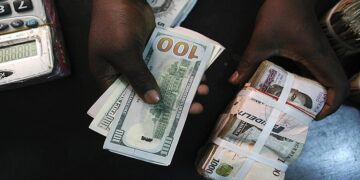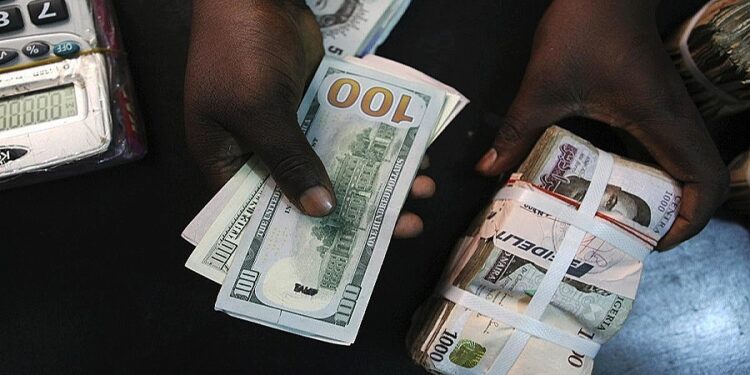By John Ikani
The Nigerian naira continues to depreciate in the black market, a sign of the country’s worsening dollar shortage.
This comes two months after the central bank adopted a more flexible exchange rate in an effort to attract more foreign currency.
The currency of Africa’s leading crude oil producer, Nigeria, has now reached a value of 917 naira per dollar in comparison to the previous day’s rate of 900 naira.
This information is based on data tracked by Umar Salisu, a Bureau de Change (BdC) operator operating in the nation’s commercial capital.
The ongoing challenge for banks to furnish the required dollar supply has led to an increasing reliance on the black market.
Consequently, the gap between the official exchange rate and the market price continues to expand.
Mid-June saw Nigeria’s central bank initiate measures to ease foreign exchange controls.
The aim was to simplify the nation’s exchange-rate system and stimulate dollar inflows. This resulted in a 40% drop in the official rate, temporarily aligning it with the rates seen on the black market.
However, despite these efforts, the disparity between supply and demand for dollars remains considerable.
The official rate recorded a cost of 757.51 naira for purchasing one dollar on Tuesday, as reported by FMDQ OTC Securities Exchange.
This Lagos-based platform oversees foreign-exchange trading in the country.
“Amid preparations for the Christmas season’s sales, businesses are seeking street-priced dollars for importing goods, while individuals are purchasing dollars for overseas vacations,” highlighted Salisu during a telephone conversation.
“Since buyers claim that banks are falling short on providing dollars, the pressure is clearly evident in the street market.”
One factor contributing to the prevailing dollar scarcity is the aftereffect of the government’s earlier currency controls, designed to temper the demand for dollars.
Now that these restrictions have been lifted, markets are grappling with a significant backlog of unfulfilled requests.



































